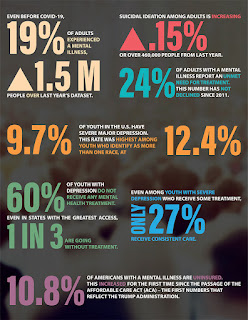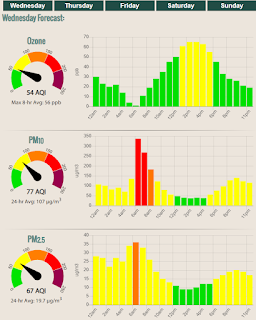Week 5/9
Panchal, Kamal, Cox, and Garfield confirmed the increase in the rate of individuals suffering from depression and anxiety symptoms stating that 4 out of 10 young adults in the U.S. have been affected. From one out of ten in 2019, the rate has increased drastically and alarmingly during the pandemic. Stress and fear caused by the health crisis have also resulted in an economic recession, which is why people are becoming anxious about the future. This information is aligned with the one previously provided by the WHO mentioned earlier. Based on the report by the KFF Health Tracking Poll, 32 percent of adults reported that they were having trouble eating, while 36 percent reported a lack of adequate sleep. There was also an increase in alcohol or substance dependency at a rate of 12 percent. In addition, 12 percent were reported to have worsening chronic mental conditions (those who already have existing mental illnesses or disorders) (Panchal, Kamal, Cox, and Garfield 1).
The information can supplement the ones given by CDC earlier in this literature review. Although the other two sources did not mention troubles in sleeping and eating, these are also patterns of behavioral problems that are symptoms of depression brought about by the pandemic. Thus, this source is reliable and can support the main argument that this research paper will be pushing. Moreover, the KFF data were extracted by the researchers of this particular study making it more credible and valid.
Some figures to help the visual learners:




Comments
Post a Comment